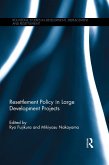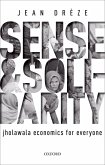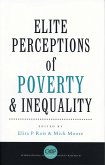As economic crises, growing inequality and climate change prompt a global debate on the meaning and trajectory of development, increasing attention is focusing on 'social and solidarity economy' as a distinctive approach to sustainable and rights-based development.
While we are beginning to understand what social and solidarity economy is, what it promises and how it differs from 'business as usual', we know far less about whether it can really move beyond its fringe status in many countries and regions. Under what conditions can social and solidarity economy scale up and scale out - that is, expand in terms of the growth of social and solidarity economy organizations and enterprises, or spread horizontally within given territories?
Bringing together leading researchers, blending theoretical and empirical analysis, and drawing on experiences and case studies from multiple countries and regions, this volume addresses these questions. In so doing, it aims to inform a broad constituency of development actors, including scholars, practitioners, activists and policy makers.
While we are beginning to understand what social and solidarity economy is, what it promises and how it differs from 'business as usual', we know far less about whether it can really move beyond its fringe status in many countries and regions. Under what conditions can social and solidarity economy scale up and scale out - that is, expand in terms of the growth of social and solidarity economy organizations and enterprises, or spread horizontally within given territories?
Bringing together leading researchers, blending theoretical and empirical analysis, and drawing on experiences and case studies from multiple countries and regions, this volume addresses these questions. In so doing, it aims to inform a broad constituency of development actors, including scholars, practitioners, activists and policy makers.









